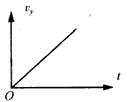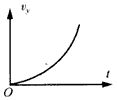问题
单项选择题
阵发性室上性心动过速并发变异型心绞痛,宜采用下述何种药物治疗
A.维拉帕米
B.利多卡因
C.普鲁卡因胺
D.奎尼丁
E.普萘洛尔
答案
参考答案:A
解析:维拉帕米是常用的钙拮抗药,可用于各型心绞痛包括变异型心绞痛、稳定型心绞痛和不稳定型心绞痛,亦为治疗阵发性室上性心动过速的首选药。利多卡因的适应证为室性心律失常,普鲁卡因胺常用于室性早搏、阵发性室性心动过速。奎尼丁为广谱抗心律失常药,适用于治疗房性、室性及房室结性心律失常。普萘洛尔治疗室上性和室性心律失常。




